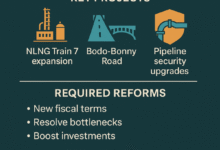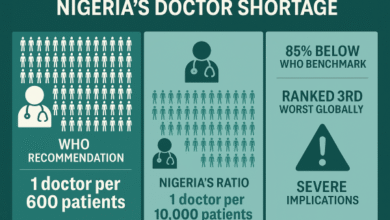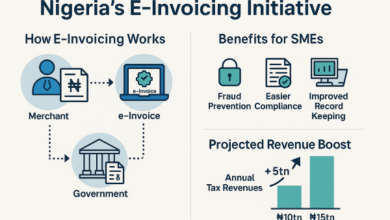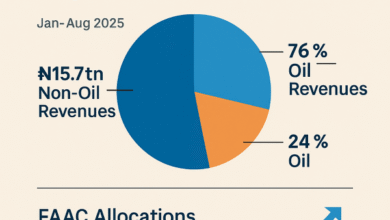
The Independent Petroleum Marketers Association of Nigeria (IPMAN), Western Zone, says members will shut operations from Monday, September 8, to protest what they describe as an attempt to monopolise the downstream market as the Dangote Petroleum Refinery and Petrochemical Company moves to distribute petrol (PMS) and diesel directly to stations.
The decision—taken at a zonal council meeting of officers, depot chairmen and secretaries across the South-West—also expresses solidarity with NUPENG over job-security concerns for Petroleum Tanker Drivers (PTD).
Zone Chairman Chief Oyewole Akanni warned that the entry of Dangote (alongside MRS Energy Ltd) into last-mile distribution could crater independent marketers’ margins, threaten thousands of jobs across over 4,000 trucks, and “negate the Petroleum Industry Act (PIA)” if a refiner is allowed to distribute directly. He instructed members not to open stations from Monday unless the Federal Government intervenes.
Dangote, for its part, has previously flagged a logistics programme backed by 4,000 CNG-powered trucks to move products nationwide—an efficiency play that could compress haulage costs and improve availability.
Why this matters (and how it could hit pumps)
- Immediate risk of queues: A coordinated Western-zone shutdown typically tightens supply across Lagos–Ibadan–Abeokuta–Akure–Ado Ekiti–Osogbo corridors. Even a short stoppage can trigger panic buying and price spikes.
- Margin compression vs. consumer prices: Direct refiner-to-retail distribution can remove layers of intermediaries. In theory, this pressures pump prices downward where logistics savings are real. In practice, transitions are messy—particularly when existing fleets, contracts and depot throughput are disrupted.
- Jobs and fleets in the line of fire: IPMAN and NUPENG’s core fear is volume displacement: if a vertically integrated distributor moves significant product with its own trucks, third-party haulage volumes and driver jobs may fall unless a structured access framework exists.
The PIA angle (what’s really at stake)
IPMAN argues the PIA “prohibits” refiners from distributing. The heart of the dispute is market structure, not just legality:
- The PIA created a licensing-and-competition regime for midstream/downstream.
- Vertical integration (refine + distribute) is governed by licences and competition safeguards.
- The regulator determines who can supply whom—subject to non-discrimination and fair access obligations where market power could be abused.
Translation: The battle is over access, parity pricing, and fair play, not simply whether a refiner can load trucks.
Scenarios (next 7–14 days)
- Mediated compromise: Regulator convenes Dangote–IPMAN–NUPENG. Outcome: lane/volume allocations, transparent haulage tariffs, and a job-absorption plan for PTDs. Queues ease.
- Short, sharp disruption: 2–4 days of patchy closures, panic purchasing, and opportunistic price hikes in the South-West before talks force a truce.
- Prolonged standoff: Broader scarcity, enforcement actions, and a louder policy fight over dominance vs. efficiency in the downstream.
Winners & Losers (if direct distribution proceeds)
Potential winners
- Consumers/SMEs (medium term): If logistics costs genuinely fall, expect sharper competition on pump prices where supply is steady.
- Refiner-led networks: Faster turnarounds, CNG-powered fleets reduce diesel exposure and operating costs.
At risk
- Independent marketers & depot throughput: Lower third-party volumes; pressure on trading margins.
- PTDs & motor boys: Route realignment or fewer trips unless third-party carriage is baked into the model.
BRANDECONOMY Takeaways
- Fuel scarcity is a policy-execution risk, not a foregone conclusion. With clear rules on licences, open access and non-discrimination, vertical integration can coexist with a vibrant independent retail base.
- **CNG fleets are a logistics moat—**but they must compete fairly, not foreclose rivals.
- Communication matters: Silence from regulators in moments like this fuels panic, hoarding and price volatility.
What stakeholders should do now
For Government/Regulators (NMDPRA, FCCPC, Labour):
- Publish a plain-English note clarifying who may distribute under the PIA and on what terms.
- Mandate open, non-discriminatory access to loading racks and fair haulage tariffs where market power exists.
- Broker a transition framework that reserves third-party volumes and creates job-absorption pathways for PTDs.
- Stand up a real-time dashboard: depot loads, retail availability, and price bands—updated daily during the dispute.
For IPMAN members:
- Organise as buying consortia to negotiate parity supply; upgrade to the appropriate wholesale/distribution licences if needed.
- Hybrid logistics: contract a slice of the refiner’s network where economical; redeploy your trucks to last-mile corridors.
- Protect cashflow: secure line-of-credit for uplift, automate station power (CNG/solar-hybrid) to lower OPEX.
For Corporates & Fleet Owners:
- Dual-source (refiner + depot) to reduce disruption risk.
- Route optimisation: batch deliveries, off-peak loading, enforce driver-hour rules.
- Fuel budgeting: set weekly caps; communicate with staff to discourage panic purchases.
For Consumers:
- Avoid panic buying. Purchase normal volumes; keep receipts.
- Plan trips and share rides during the first week of the shutdown call.
- Report hoarding/gouging through official hotlines—evidence helps enforcement.
Bottom line
“Fuel Scarcity” is avoidable if regulators act quickly, access rules are transparent, and all parties accept a managed transition into a more efficient, lower-cost logistics era. The next 7–14 days will show whether Nigeria seizes that opportunity—or slides into another round of queues.











